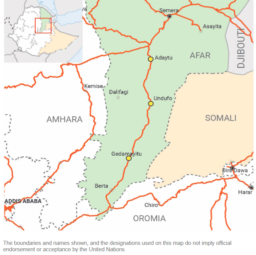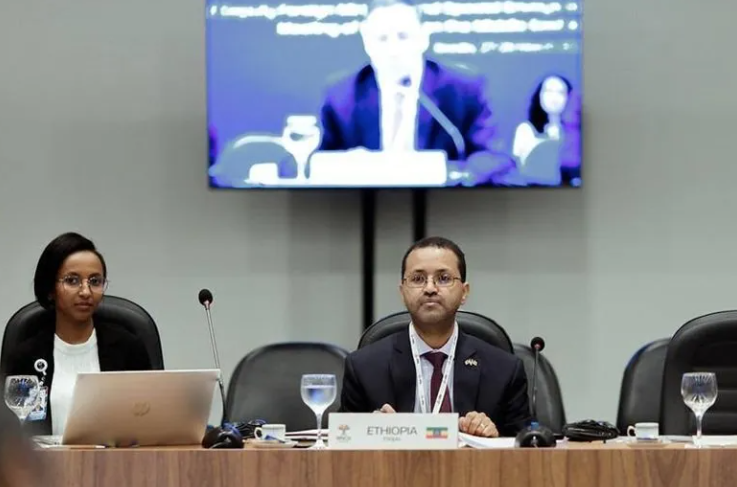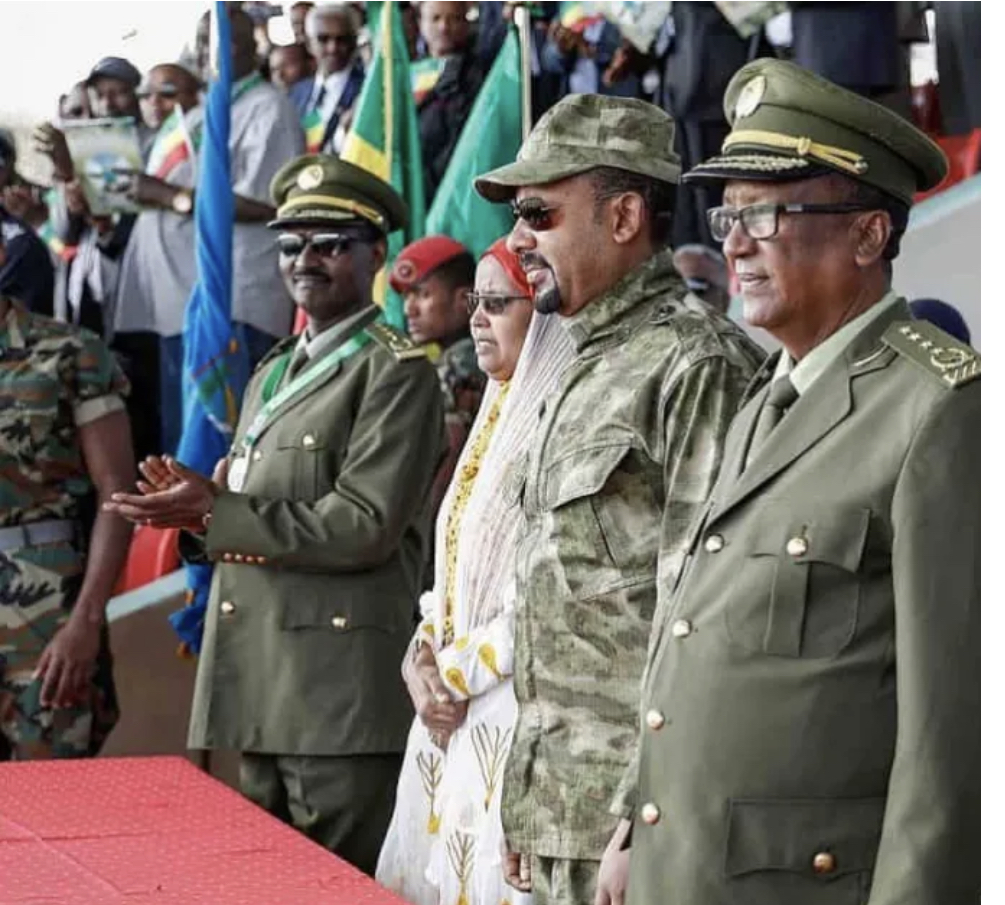On 23 January 2021, at least 30 police officers were killed and 40 more were injured in “violent clashes between the Federal Police and Afar security forces, and the Issa militia in Adaytu village”, the UNOCHA reported. “While initial reports indicated that up to 70 police officers were killed and some 64 wounded, authorities later confirmed 30 deaths and 40 injuries. Casualties on the Issa militia side remains unknown,” UNOCHA’s latest report said….
The land dispute concerns the following three kebeles along with border areas between Afar’s zones 1 and 3 and Somali’s Sitti Zone: Adaytu of Mille woreda, Undufo of Gewane woreda, and Gedamaytu of Amibara woreda. These kebeles are predominately inhabited by the ethnic Somali Issa clan and hold strategic importance due to their locations along the highway between Addis Ababa, Djibouti, and the Assab port in Eritrea.
The tension between Afar and Issa tribes over the contested area dates back at least decades, with the Issa inhabitants, backed by Somali authorities, desiring to be part of the Sitti Zone (Somali Region), while the Afar considered the area to be an integral part of the Afar Region. In 2014, the then regional presidents of the Afar and Somali Regions met in Awash to address the longstanding dispute and signed the document recognizing the three kebeles as special kebeles within the Afar regional boundary. The agreement was also signed by the Ministry of Federal and Pastoralist Development Affairs, in the presence of the Deputy Prime Minister.
The agreement, however, was disputed by the Ugaz (leader) of the Issa, which eventually led to the resumption of violence. The conflict has been ongoing for the past three years, particularly since 2018 when the people in the designated special kebeles rejected their integration into Afar Region and demanded to be part of the Sitti Zone in the Somali Region.
The continued conflict between Afar and Issa presents significant access challenges and will likely affect the movement of humanitarian supplies between the ports of Djibouti and Assab. Partners have also expressed that they have been unable to carry out needs assessments and assist the affected community as a result of insecurity.




